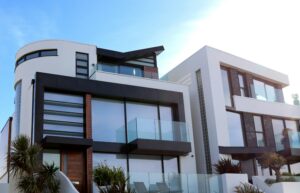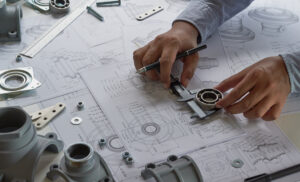In today's tech-driven landscape, smart building technologies have quickly transitioned from luxurious extras to fundamental must-haves. These systems are revolutionizing the way we manage key functions like energy usage, lighting, climate and security, whether it's in our living rooms or corporate offices.
Of course, there's the elephant in the room: initial costs. These advanced systems don't come cheap, which can give pause to property owners and managers. But the silver lining is that savvy tax planning can really tip the scales. By leveraging the right smart building tax incentives, you'll offset the startup expenses and set yourself up for ongoing savings.
No matter if you're a veteran in building management or a newcomer to the smart building scene, synchronizing your tech investments with your tax planning is vital. This alignment will not only boost your bottom line but also accelerate your journey toward sustainability.

The Smart Building Revolution is Here
The smart building revolution isn't something to look forward to—it's happening right now. Experts are predicting a mind-blowing 150% surge in smart buildings over the next few years.
Energy and Cost Savings
When we talk about innovations like automated lighting and intelligent HVAC systems, we're not just discussing cool tech. These systems have real-world impact, significantly cutting down energy usage and slashing operational costs in the process.
Enhanced Experience
If you've ever lived or worked in a smart building, you know the difference it makes. Imagine walking into a room and having the climate control adjust itself to your comfort or knowing that smart locks are enhancing building security. It's not just convenient; it's a whole new level of living and working.
Financial Viability
While smart systems require upfront investment, the long-term cost savings are substantial thanks to energy efficiency. Market projections indicate strong financial viability, with the global smart building market expected to hit $120 billion by the end of 2026.
Core Smart Technologies Defined
Smart building technology encompasses three main categories:
- Energy management software and hardware to monitor and control energy usage
- Internet of Things (IoT) devices like smart thermostats and sensors
- Automation systems for lighting, climate control, security and more
When implemented together, these technologies create intelligently managed buildings of the future.
Smart Tax Planning Pays Off
Implementing smart systems requires significant upfront investment, which is why strategic tax planning is so essential. Smart building tax incentives are not just a nice bonus—they should be central to your smart building financial strategy.
Federal and state tax credits and deductions can reduce the burden of initial costs. For example, the 179D commercial buildings energy efficiency tax deduction provides substantial offsets for installing qualifying HVAC, lighting and other systems.
But tax perks don't end after installation. Ongoing tax incentives can boost long-term ROI if you maintain eligibility. Some require demonstrating continued energy savings, so you should plan ahead to supply needed documentation.
Work with tax professionals to integrate incentives into your overall project budget and timeline. Look beyond just installation costs to factor in maintenance and operational expenses. With smart financial planning, tax incentives can tip the scales to make investing in transformative building technologies pay dividends for both your bottom line and the environment.
Unlocking the 179D Commercial Building Tax Deduction
The 179D tax deduction offers major savings for upgrading commercial buildings with energy-efficient technologies. Building owners can deduct as much as $5 per square foot by meeting eligibility requirements.
What Qualifies?
- Installations like HVAC, lighting and building envelope systems that demonstrably reduce total energy usage
- System performance verified by an independent energy modeling simulation
- Objective certification of results by a qualified engineering professional
Claiming the Deduction
To secure the 179D tax benefits, you should:
- Maintain comprehensive installation records like invoices and certifications
- File IRS Form 5695 for the year when installation was completed
- Provide full documentation to the IRS upon request
With potential deductions of $5/sq. ft or more, the 179D credit can significantly offset costs to implement smart building systems—but documentation requirements and eligibility criteria make consulting experts on smart building tax incentives essential from the start.
Stacking Incentives at All Levels
The 179D deduction is just one piece of the incentive puzzle. Here are some additional techniques for maximizing benefits:
Tap into Federal Support
- Investment Tax Credit (ITC) for renewable energy installations
- Modified Accelerated Cost Recovery System (MACRS) (and cost segregation) for faster depreciation
- Renewable Energy Production Tax Credit (PTC) for onsite power generation
Look to States and Local Sources
- State tax credits for efficiency and renewable energy
- Utility rebates and discounts
- Low-interest financing from municipalities
Find Grants and Subsidies
Government, nonprofit and industry grant programs offer additional financial support for sustainability and innovation. For further information, please see ETS Grant Services.
Smart Buildings Require Smart Tax Planning
In an era of climate change and urbanization, smart building technologies are imperative for efficiency, sustainability and quality of life. Although costs can deter adoption, strategic tax planning provides real financial viability. With the right tax strategy, building owners can capitalize on incentives to implement innovative systems that reduce environmental impact and operating costs.
At Engineered Tax Services, our team specializes in navigating the intricacies of energy tax programs. We help building operators maximize benefits of smart building tax incentives to achieve ROI.
The future of intelligent, efficient and convenient buildings is here. Contact us to start your smart tax planning journey.



